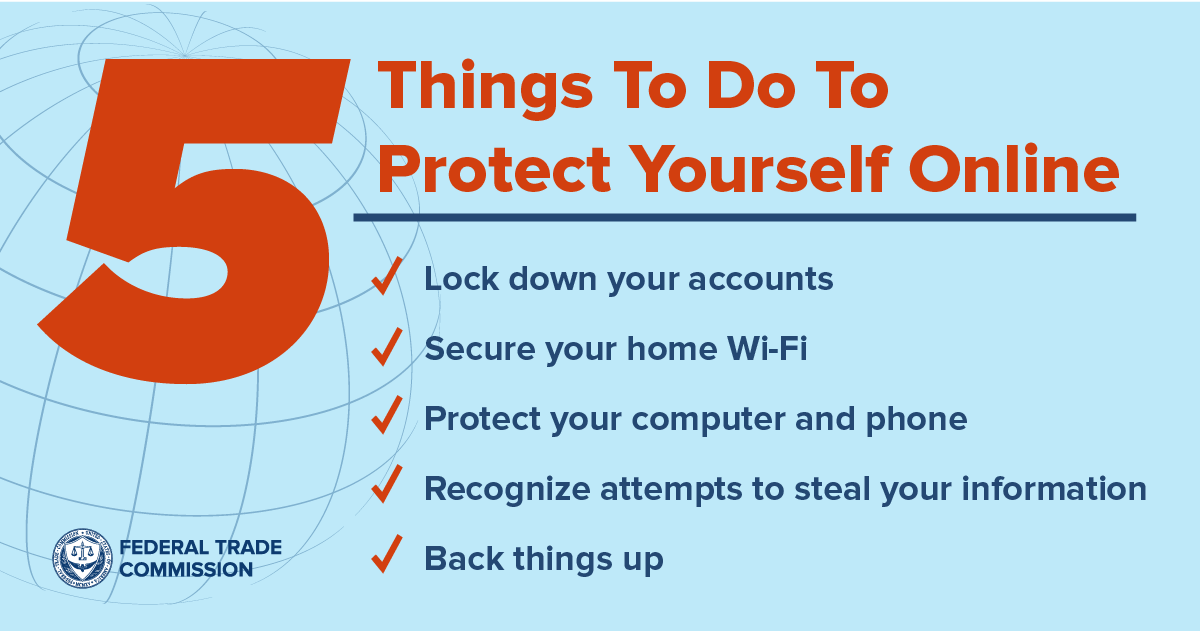How to Avoid Scams & Hacks in 2024: Smart Safeguards
To avoid scams and hacks in 2024, stay updated on cybersecurity trends and use strong, unique passwords. Regularly update software and enable two-factor authentication.
Cyber threats are evolving rapidly, making it crucial to stay vigilant. Scammers and hackers use increasingly sophisticated methods, targeting individuals and businesses alike. By understanding the common tactics they employ, you can better protect yourself. Start with basic security measures like using strong, unique passwords and regularly updating your software.
Enable two-factor authentication to add an extra layer of security. Stay informed about the latest cybersecurity trends and educate yourself on how to recognize phishing attempts. Taking these steps will significantly reduce your risk of falling victim to scams and hacks.

Credit: us.norton.com
Introduction To Scams And Hacks In 2024
The digital world is evolving rapidly. With this evolution, scams and hacks are becoming more sophisticated. In 2024, these threats are more advanced than ever before. Understanding these threats is crucial for staying safe online.
Changing Landscape Of Digital Threats
The landscape of digital threats is constantly changing. Cybercriminals are always finding new ways to exploit vulnerabilities. Here are some key changes to watch out for in 2024:
- Phishing attacks are becoming more convincing.
- Ransomware is targeting both individuals and large organizations.
- Social engineering tactics are getting more sophisticated.
Importance Of Cybersecurity Awareness
Cybersecurity awareness is more important than ever. Everyone should know how to protect themselves online. Here are some essential tips:
- Use strong, unique passwords for each account.
- Enable two-factor authentication wherever possible.
- Update your software regularly to patch vulnerabilities.
Recognizing Common Scams
In 2024, being aware of scams is crucial. Scammers have become more sophisticated. Recognizing common scams can save you from financial loss and stress.
Phishing Attempts And How To Spot Them
Phishing attempts trick you into providing personal information. Scammers often use emails, texts, or phone calls.
- Suspicious sender addresses: Check if the email address looks off.
- Generic greetings: Scammers may use “Dear Customer” instead of your name.
- Urgent language: Be wary of messages that demand immediate action.
- Unusual links: Hover over links to see the actual URL before clicking.
Always verify the source before sharing personal information. Use trusted channels to contact the organization directly.
Social Engineering Tactics
Social engineering tricks people into revealing confidential info. Scammers may pose as trusted individuals.
- Impersonation: They pretend to be someone you know or trust.
- Pretexting: They create a fabricated scenario to obtain info.
- Baiting: They offer something tempting to lure you into a trap.
- Quid pro quo: They promise a service in exchange for your info.
Stay vigilant and question unsolicited requests for information. Verify identities through multiple channels.
Tech Habits For Better Security
Staying safe online in 2024 requires smart tech habits. These habits protect against scams and hacks. Follow these simple steps for better security.
Regular Software Updates
Always keep your software up-to-date. Updates fix security holes. They also add new features and improve performance.
Turn on automatic updates for your devices. This includes your phone, computer, and tablet. Don’t ignore update notifications. They are important for your safety.
Using Secure And Unique Passwords
Create strong and unique passwords for each account. Don’t use the same password everywhere. If one gets hacked, others stay safe.
Use a password manager to store your passwords. These tools create and save complex passwords for you. You only need to remember one master password.
| Weak Password | Strong Password |
|---|---|
| password123 | 9#F$kL@8z! |
| qwerty | G7^m3p&V |
Enable two-factor authentication (2FA) for extra security. 2FA adds an extra step when logging in. This makes it harder for hackers to access your accounts.
The Role Of Two-factor Authentication
As we move into 2024, the threat of scams and hacks continues to evolve. Protecting personal and sensitive information is more critical than ever. One effective method to enhance online security is Two-Factor Authentication (2FA). This security measure adds an extra layer of protection, making it harder for cybercriminals to access your accounts.
How 2fa Adds An Extra Layer Of Security
Two-Factor Authentication (2FA) requires two forms of identification to access an account. The first factor is usually a password. The second factor is something the user has, like a smartphone. This extra step ensures that even if a password is stolen, the account remains secure.
2FA significantly reduces the risk of unauthorized access. It makes it more difficult for hackers to breach your account. They would need both your password and your secondary form of identification.
Implementing 2FA provides peace of mind. It protects your personal information from being compromised. It is a simple yet powerful tool in the fight against online scams and hacks.
Different Types Of 2fa Methods
There are several types of 2FA methods available. Each offers varying levels of security and convenience.
| 2FA Method | Description |
|---|---|
| SMS-Based 2FA | A code is sent to your mobile phone via SMS. You enter this code to gain access. |
| Authenticator Apps | Apps like Google Authenticator generate time-sensitive codes. These codes are used to verify your identity. |
| Email-Based 2FA | A verification link or code is sent to your email. Clicking the link or entering the code verifies your identity. |
| Hardware Tokens | Physical devices like YubiKey generate unique codes. These codes are required for account access. |
| Biometric Authentication | Uses fingerprints, facial recognition, or voice recognition for verification. |
Choosing the right 2FA method depends on your needs. Each method offers a balance between security and convenience. For most users, authenticator apps and SMS-based 2FA are popular choices.
Incorporating 2FA into your online security strategy is essential. It adds a valuable layer of protection against scams and hacks.
Safe Online Shopping Practices
Online shopping is convenient but can be risky. Scammers and hackers target shoppers. Follow safe practices to protect yourself. Learn how to shop safely online in 2024.
Verifying Legitimate Websites
Ensure the website is legitimate before making a purchase. Check the URL for a secure connection. A secure site starts with https://. Look for a padlock icon in the address bar.
Verify the website’s contact details. Legitimate websites provide a physical address and phone number. Use a search engine to check reviews of the website. Avoid sites with many negative reviews.
Use a whois lookup tool. This tool provides information about the domain’s owner. Avoid sites with hidden or private registration details.
Secure Payment Methods To Use
Use secure payment methods to protect your financial information. Credit cards offer better protection than debit cards. They allow you to dispute charges if something goes wrong.
Consider using a payment service like PayPal. These services add an extra layer of security. Avoid paying with wire transfers or money orders. These payment methods are harder to trace.
Enable two-factor authentication (2FA) for your online payments. 2FA adds an extra layer of security. It requires a second form of identification.
| Payment Method | Security Level |
|---|---|
| Credit Card | High |
| PayPal | High |
| Wire Transfer | Low |
| Money Order | Low |
By following these practices, you can shop online safely. Protect your personal and financial information. Stay informed and vigilant while shopping online.
Protecting Personal Information
In 2024, protecting personal information is more crucial than ever. Scammers and hackers constantly evolve their tactics. Staying informed and vigilant is essential. This section will guide you through the best practices for safeguarding your data.
Data Sharing: Dos And Don’ts
Sharing personal data online can be risky. Follow these guidelines to stay safe:
- Do: Share information only on trusted websites.
- Do: Use strong, unique passwords for different accounts.
- Do: Enable two-factor authentication wherever possible.
- Don’t: Share personal information on public forums.
- Don’t: Click on suspicious links in emails or messages.
- Don’t: Store sensitive information in unprotected files.
Understanding Privacy Settings
Privacy settings are your first line of defense. Here’s how to manage them effectively:
| Platform | Key Privacy Settings |
|---|---|
| Control who sees your posts, limit friend requests, review tagged posts. | |
| Set account to private, limit who can tag you, review third-party apps. | |
| Private account, control comments, manage story sharing. | |
| Review account activity, manage ad settings, control data sharing. |
Regularly review and update your privacy settings. This ensures your information remains secure.
Scam And Hack Incident Response
In 2024, digital security is more critical than ever. Scams and hacks are becoming more sophisticated. Knowing how to respond is crucial. This section will guide you through effective responses.
Steps To Take When You Suspect A Scam
Recognize the signs: Unusual emails, messages, or pop-ups. They often include urgent requests or offers too good to be true.
Do not engage: Avoid clicking links or downloading attachments. Scammers use these to gain access.
Verify the source: Contact the person or company directly. Use a trusted contact method.
Secure your accounts: Change passwords immediately. Enable two-factor authentication for added security.
Check for malware: Run a full antivirus scan on your device. Remove any threats detected.
Reporting Scams And Hacks
Document the incident: Take screenshots and note details. Include dates, times, and any communication.
Report to authorities: Contact your local cybercrime unit. Provide them with all documented evidence.
Inform your bank: If financial information is compromised, notify your bank. They can monitor for suspicious activity.
Alert affected parties: Inform friends, family, or coworkers. They may also need to secure their information.
Update your software: Ensure all devices have the latest updates. This helps prevent future vulnerabilities.
| Step | Description |
|---|---|
| Recognize the signs | Look for unusual emails or messages. |
| Do not engage | Avoid clicking links or downloading files. |
| Verify the source | Contact directly using trusted methods. |
| Secure your accounts | Change passwords, enable two-factor authentication. |
| Check for malware | Run a full antivirus scan on your device. |
| Document the incident | Take screenshots and note details. |
| Report to authorities | Contact your local cybercrime unit. |
| Inform your bank | Notify your bank about compromised information. |
| Alert affected parties | Inform friends, family, or coworkers. |
| Update your software | Ensure all devices have the latest updates. |
Staying Informed About Latest Scams
Keeping yourself updated about the latest scams is crucial. Hackers are always creating new tricks. Learn how to stay ahead by knowing what’s happening in the world of scams.
Following Credible Cybersecurity News
Follow credible sources to get accurate information. Websites like Cybersecurity News and Krebs on Security provide reliable updates. These sites often share breaking news about new threats.
Use a reliable news app to get instant updates. Here is a simple table to help you choose:
| Website | Focus Area |
|---|---|
| Cybersecurity News | General Cyber Threats |
| Krebs on Security | Detailed Scam Reports |
Joining Community Forums For Updates
Community forums are great for real-time updates. Join forums like Reddit and Stack Exchange. These platforms have dedicated sections for cybersecurity.
Engage with community members to learn more. Here are some popular forums:
Educational Resources And Training
Staying safe from scams and hacks in 2024 requires knowledge. Educational resources and training are crucial for building cybersecurity skills. This section explores courses, certifications, workshops, and webinars. Learn how to protect yourself from cyber threats.
Cybersecurity Courses And Certifications
Taking cybersecurity courses can greatly improve your knowledge. Many online platforms offer courses. Websites like Coursera, Udemy, and edX provide excellent options. These courses cover various topics:
- Basic cybersecurity principles
- Advanced threat detection
- Network security
Along with courses, obtaining certifications adds credibility. Here are some popular certifications:
| Certification | Provider |
|---|---|
| Certified Information Systems Security Professional (CISSP) | ISC2 |
| Certified Ethical Hacker (CEH) | EC-Council |
| CompTIA Security+ | CompTIA |
Workshops And Webinars To Attend
Workshops and webinars offer practical, hands-on learning. Many organizations host these events. They help you stay updated on the latest threats. Here are some benefits of attending:
- Live interaction with experts
- Real-time problem solving
- Networking opportunities
Look for workshops and webinars on these platforms:
- Eventbrite
- Meetup
- LinkedIn Events
Staying educated is key to avoiding scams and hacks. Use these resources to stay safe in 2024.

Credit: consumer.ftc.gov
Conclusion: Proactive Mindset Against Scams
In 2024, the digital world presents many risks. Staying safe requires a proactive mindset. This involves constant awareness and community collaboration. Being proactive can help protect against scams and hacks. Below are essential strategies to adopt.
Maintaining Vigilance
Always keep your software updated. Updates fix security holes and bugs. Use strong, unique passwords for all accounts. Enable two-factor authentication for added security. Be wary of unsolicited emails and messages. Scammers often use phishing tactics. Verify the sender before clicking any link. Regularly check your bank and credit card statements. Report any suspicious activity immediately.
Community Collaboration And Support
Join online forums and groups focused on cybersecurity. Share your experiences and learn from others. Communities can provide valuable insights and support. Report scams to relevant authorities. This helps protect others from falling victim. Educate family and friends about the latest scams. Knowledge can empower them to stay safe. Collaborate with your workplace’s IT department. They can offer additional security measures and advice.
| Strategy | Description |
|---|---|
| Update Software | Fixes security issues and bugs |
| Strong Passwords | Prevents unauthorized access |
| Two-Factor Authentication | Adds an extra layer of security |
| Verify Emails | Prevents phishing attacks |
| Monitor Accounts | Detects suspicious activity |
| Join Communities | Offers support and advice |
| Educate Others | Spreads awareness and safety tips |

Credit: coinpedia.org
Frequently Asked Questions
How Do You Prevent Future Scamming Attempts?
Monitor your accounts regularly. Use strong, unique passwords. Enable two-factor authentication. Stay updated on scam tactics. Avoid sharing personal information online.
How Can I Stop A Scammer?
Report the scammer to relevant authorities. Block and ignore their messages. Avoid sharing personal information online. Update your security settings. Educate yourself about common scams.
What Are The Latest Scams To Be Aware Of?
Latest scams include phishing emails, fake online stores, social media giveaway frauds, and tech support scams. Be cautious of unexpected messages. Verify sources before sharing personal information or making purchases. Always use strong passwords and enable two-factor authentication.
How Can Seniors Avoid Internet Scams?
Seniors can avoid Internet scams by using strong passwords, avoiding suspicious links, and not sharing personal information. Verify sources before making purchases or sharing data. Install reliable antivirus software and keep it updated. Always question unsolicited messages and calls.
Conclusion
Staying vigilant online is crucial in 2024. Follow these tips to protect yourself from scams and hacks. Regularly update your software and use strong passwords. Avoid sharing personal information on suspicious websites. Stay informed and cautious to enjoy a safer online experience.
Your digital safety is in your hands.
